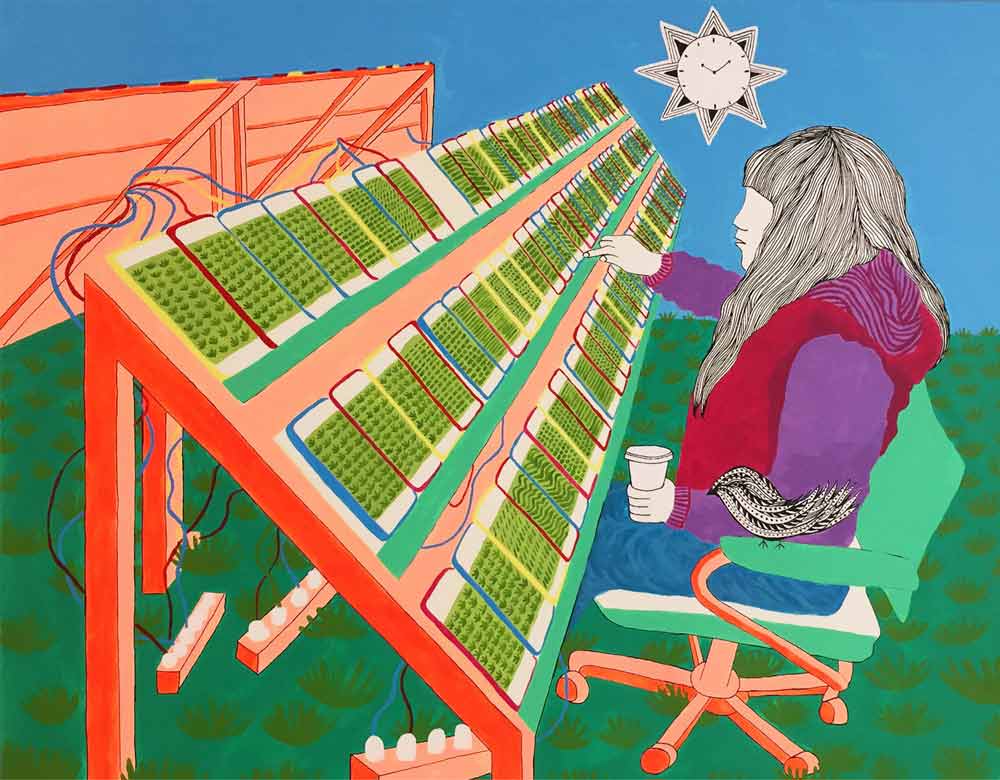When it comes to the internet, its population comprises of two types: humans and internet bots.
While it's a fact that more and more people are connected to the internet every single day, there is no denying that internet bots' population also increase. These internet bots, or also called web robots, robots or simply bots, can be designed to run automated tasks, usually with the intent to emulate human activity on the internet, repetitively.
The most common use of bots is for crawling the web.
Others run automated scripts, analyzes files and data, and more.
Since more than half of all web traffic is generated by bots, and because bots can be programmed to also emulate clicking, tech companies deploy various strategies to know when their users are humans, and where they are bots. One of the ways, include using CAPTCHAs, among others.
And since tech companies are getting better in differentiating their human and bot users, click farms flourish.
Further reading: Understanding 'Click Farm', And Why This Shadowy Internet Activity Is Lurking

Click farms are organizations, or a large group of workers, hired to emulate what people usually do when browsing the web or using apps.
They tend to be located in developing countries, where human labor is relatively cheaper. Places include countries, such as China, India, Nepal, Sri Lanka, Egypt, Indonesia, the Philippines, and Bangladesh.
But since the demand is high, click farms are also available in developed countries, including the U.S. and Europe.
As a matter of fact, anyone can run a click farm business using a computer and a few smartphones.
What's more, thanks to the internet that is growing larger, click farms can also be operated with remote workers. Many of the businesses outsource their human labor to freelancers.
Click farms here, use the human workers to click on links, surf target websites for a period of time, sign up for newsletters, Like social media posts and follow other users, click on links and advertisements, and so forth.
It can also be used to increase views of videos or streams.
The idea here is that, emulating those activities would increase revenue of their clients substantially, but fraudulently.

Other activities that can be done through click farms, include and not limited to: posting comments on websites or social media, generating backlinks and channeling web traffic for SEO purposes, sharing news articles that also include fake news and propaganda.
This kind of simulated traffic can also be used to damage campaigns of others, in a strategy known as click fraud.
For more than often, click farms advertise openly on the internet, usually masquerading as genuine traffic sources.
Click farms are flourishing, because it's extremely difficult for automated filters to detect this kind of simulated traffic, simply because the visitor behavior appears exactly the same as that of an actual legitimate visitor.
While bot-related activities are usually cheaper, human-made activities from click farms are needed to fill forms and CAPTCHAs, and other frauds that requires more complex human interaction that computers couldn't replicate, such as cost-per-install (CPI) or complex lead generation campaigns.
To deal with this issue, tech companies are always trying to improve their algorithms and AI to better detect the fraudulent activities, automatically.
But still, the process is like a cat-and-mouse game, in which one or the other will lead, and the other will follow.
What's more, despite click farms conduct fraud, in general, click farms are not illegal.
Since their services are technically legitimate, there is nothing to say that click farms themselves should be illegal. After all, the activities they do don't violate the law. Clicking on the Like button is quite mundane, and isn't a crime of any sort.
While click farms can get busted by the police, and the workers arrested, the businesses weren't raided because of their practices. Instead, the police charges were focused on the immigration status of the workers, the smuggling of the phones being used, and the use of illegal unregistered SIM cards.
In other words, the majority of the cases, the main legal issues stem from employees' rights that include working conditions and wages.
What this means, click farms are generally legal, even if they are frowned on.

This is why tech companies have been discouraging people to use click farms' services in one way or the other, over the years
Google for example, has made substantial efforts to combat click frauds. Partly, this is because most of Google's revenue come from ads being delivered on websites and apps as well as on YouTube, and bots definitely interfere with its analytics data and advertisers expectation.
Alphabet Inc., the parent company of both Google and YouTube, said that it "takes action against bad actors that seek to game our systems."
Meta, the parent company of Facebook, said that "a Like that doesn't come from someone truly interested in connecting with the brand benefits no one. If you run a Facebook page and someone offers you a boost in your fan count in return for money, our advice is to walk away – not least because it is against our rules and there is a good chance those likes will be deleted by our automatic systems. We investigate and monitor "like-vendors" and if we find that they are selling fake likes, or generating conversations from fake profiles, we will quickly block them from our platform."
Instagram said that the company has been "deactivating spammy accounts from Instagram on an ongoing basis to improve your experience."
LinkedIn said that buying connections "dilutes the member experience violates their user agreement and can also prompt account closures."
Click farms have become a substantial, shadowy part of the internet. As long as the demand is high, and tech companies cannot introduce a solution to end the practice once and for all, all day everyday, it's business as usual.
Click farms will continue to operate because most of the money that is generated from the internet is from clicks and little from anything else.
